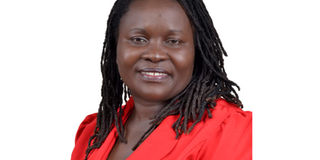Education and African futures: To fix or reform our system?

What you need to know:
Policy change. Every time I hear about reforms in our education system, my challenge is understanding how much the ministry is in-charge of driving policy change. I followed with keen interest developments in curriculum change for secondary level months ago, then discussion on the science policy as well as the most recent one of national teacher policy.
Many people are deeply passionate about something into which they put their energy. I probably have more areas of passion than I should, from photography to cooking. This has led me down different paths, sometimes requiring me to take several steps back.
At the heart of all of them is education, because I can never imagine what my life would have been like without it. And my heart aches each time I think of the many children who may never know that another life is possible because they cannot access quality education. A quality life is thus banked in their wildest dreams.
I was pleased that for nearly one week, I have been engaged with the Centre for Advanced Strategic Leadership (CASTLE), the think tank that organised the education conference to enable participants think about the future of education in Africa under the theme, Education and African futures.
This was in collaboration with the Institute for National Transformation and Ministry of Education and Sports. A celebrated educationist, Mr Rudmik Thomas, and his team led the thinking on how to make education transformative, presenting some of the models they have used.
These were rewarding in the way that the pre-conference workshop was conducted. Many Nigerians attended the pre-conference workshop, bringing incredible insight.
Think tanks by their very nature as not for profit are supposed to engage in the study of public policy and provide government with alternatives in policy direction.
They are, therefore, one of many sources of information in policy research relevant for policy makers. I had devoted two of my columns to matters education before this preconference workshop, and was pleased to get new perspectives.
When you attend a meeting in which government officials speak of actions being taken in ministries, it is difficult not to get impressed by the enormous amount of work these institutions are doing.
The Permanent Secretary, Ministry of Education and Sports, Mr Alex Kakooza, was very impressive with his knowledge of the education sector and talked about what the ministry has done and is yet to do with what levels of success in an honest manner. He sounded both perceptive and passionate about education. Every time I listen to people from government, I wonder how come there is such little good news coming out of these institutions.
The problem, in most cases, Mr Rudmik suggests, is not the people but the system. As such, no amount of blaming the people or training them to adapt to the system would solve anything.
This means when a system is broken, it does not matter how much money and energy we put in fixing it. What may be required is a transformation of the system once it is found to be obsolete through a thoughtful and systematic process. This transformation, therefore, requires a concrete understanding of the problem. Every time I hear about reforms in our education system, my challenge is understanding how much the ministry is in-charge of driving policy change. I followed with keen interest developments in curriculum change for secondary level months ago, then discussion on the science policy, as well as the most recent one of national teacher policy.
Yet, Mr Kakooza spoke of another policy change likely to be rolled out nationally in the next financial year. While these are all critical things, one wonders how coordinated and connected these efforts are.
It is commendable that the ministry is lending a listening ear to private initiatives such as the one CASTLE offered.
With Education minister Janet Museveni and the Prime Minister Ruhakana Rukunda attending the keynote address, they were showing the importance of the conference. Listening to participants, it seems many people are doing small but critical things in education.
Moreover, the area of informing policy with evidence from other stakeholders need strengthening. This makes the CASTLE think tank relevant in creating change.
CASTLE’s initiative brought together stakeholders in the education ecosystem and beyond, proving that people are interested.
The conference organisers led by Dr James Magara aimed to ‘explore forecasts for education on the continent and possible pathways for strengthening the systemic management of education, and providing effective and inclusive teaching and learning on the continent to produce future-ready learners’.
That this group of individuals have the audacity to hope that they can in part, identify ways to better support the provision of equitable, quality education in view of African futures, is wonderful.
Maybe we all need to be thinking of this future and providing relevant solutions, helping government to think and do things better by engaging them. We have to be interested because our children’s future depends on the education they are getting today.
We cannot afford to be complacent and be bystanders as the system has problems.
Dr Maractho is the head and senior lecturer, Department of Journalism and Media
studies at UCU. [email protected]


